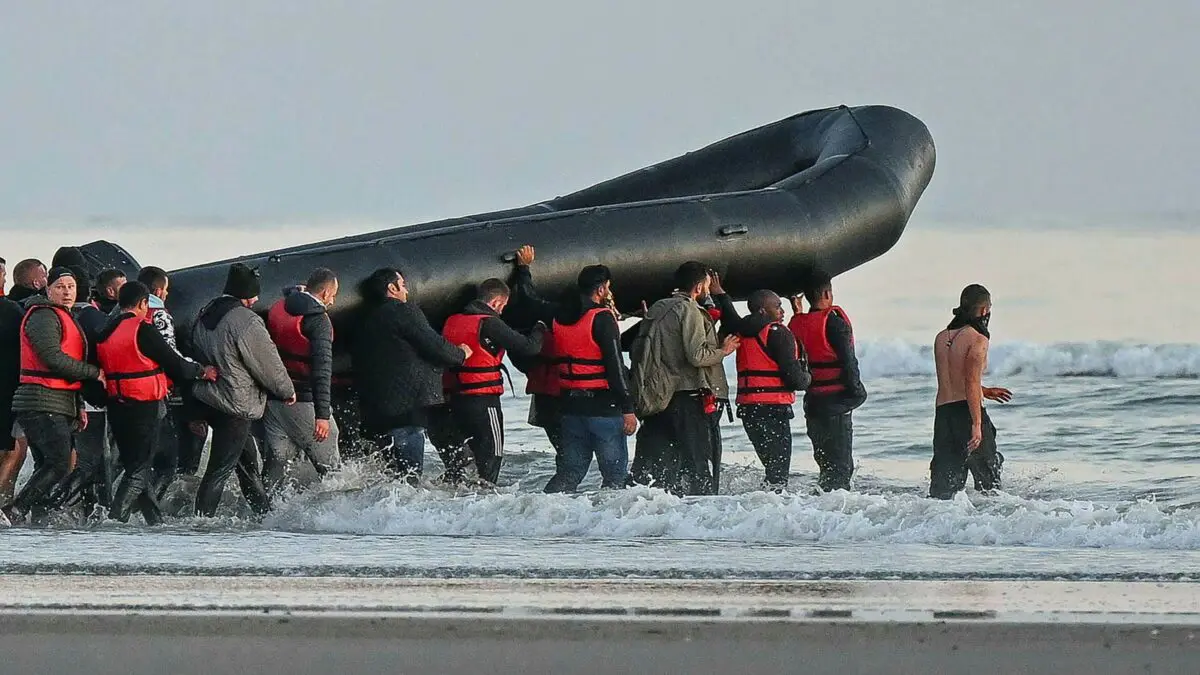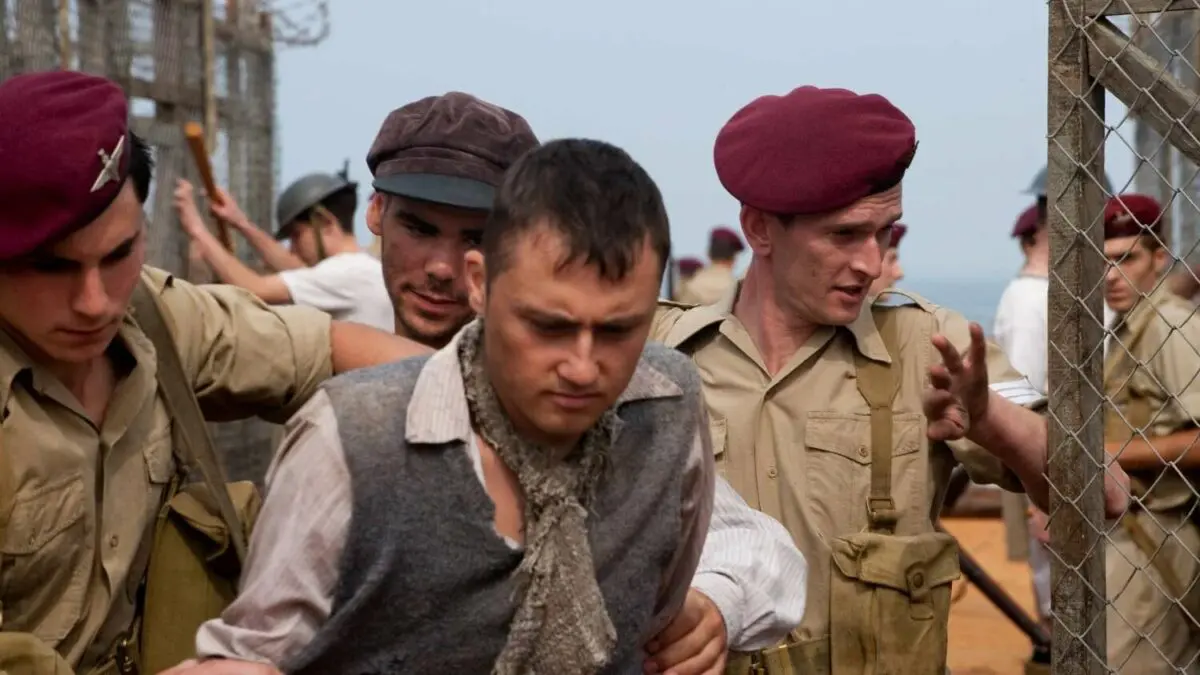A new reality TV show in the UK titled Go Back to Where You Came From has ignited a heated debate. Designed as a commentary on contemporary immigration issues, the show challenges its participants and viewers by replicating the perilous journeys undertaken by refugees. The show, however, is embroiled in controversy, facing condemnation from various groups, including human rights organizations and viewers concerned about its insensitivity.
Participants are divided into two groups, embarking on journeys from dangerous hotspots like war-ravaged Raqqa in Syria to the turbulent surroundings of Mogadishu in Somalia. The show’s premise attempts to shed light on the often unseen struggles of migrants while also delving into the divided opinions within British society. With its provocative format, the series has sparked outrage, raising important questions about ethics and entertainment in the age of reality TV.
Critics have slammed the show as voyeuristic, labeling it nauseating and exploitative. Amnesty International expressed its deep disappointment. Despite the backlash, the show has garnered attention for bringing the pressing issue of migration to the forefront of public discussion, leaving many locked in a fierce debate about its potential impact on awareness and empathy regarding the plight of refugees.
The Premise: Reality Meets Controversy
The show challenges its participants to experience first-hand the journeys undertaken by countless refugees, setting the stage for personal reflections and societal critiques. Participants include opinions both for and against immigration, increasing its polarizing nature. A particular moment that has resonated poorly is when one participant, chef Dave Marshall, suggested that immigrants crossing the Channel should be ‘blown up.’ Such inflammatory remarks set a tone that many found deeply unsettling.
The initial episodes cover visits to local markets where participants interact with families and children, all while reflecting on the humanitarian crisis surrounding immigration. The stark contrast between their daily lives and those of migrants seeking asylum creates a juxtaposition that stirs strong emotions. Moments of irony abound, such as when Marshall responds to an overnight invitation from a bombed family home, showcasing a potential lack of awareness about their situation.
Within this framework, the series endeavors to create a dialogue surrounding immigration, albeit through what many perceive to be a sensationalist lens. Many viewers are concerned that the representation is more about entertainment than education, raising questions about the true motivations behind such a format.

Engagement or Exploitation?
Debates about the ethics of reality television often emerge in discussions surrounding Go Back to Where You Came From. The juxtaposition of entertainment and real-life suffering is a significant factor in the public discourse. Media and communications professionals, like Myria Georgiou from the London School of Economics, assert that the success of reality TV hinges on the portrayal of shocking opinions. This reality opens up a new avenue of exploitation where participants may feel compelled to adopt extreme views to capture viewers’ attention.
Chloe Dobbs, a participant in the show, defends it as a compelling format that promises to engage viewers more than traditional documentaries. Her perspective illustrates the evolving landscape of television where sensationalism often takes precedence over sensitive topics. This raises a question: does the end justify the means? Can a show designed for entertainment also educate its audience on critical humanitarian issues?
With television as a vehicle for social dialogue, some feel that the portrayal of challenging situations can foster empathy and awareness. However, as critics point out, reality shows commodifying such experiences risk desensitizing audiences rather than enlightening them.
Reactions from Refugee Advocacy Groups
Responses from refugee advocacy groups have been overwhelmingly negative. Organizations like Amnesty International UK criticized the show for its sensationalism and failing to approach the sensitive topic of migration with the necessary depth and respect. The organization’s refugee rights director emphasized that complex issues like asylum require sensitivity and understanding, suggesting that the show sidesteps these essential tenets. This sentiment has echoed through social media platforms, where many viewers have expressed outrage at the perceived trivialization of a humanitarian crisis.
The Refugee Council welcomed the visibility of immigration debates on prime-time television but lamented the sensationalist approach taken by the series. They argue that television has the potential to shed light on real stories behind the headlines. However, when faced with dehumanization, as suggested by the portrayal of contestants on the show, advocacy groups worry that audiences will miss the deeper implications of migration challenges.
Further controversies arose from challenges set for the participants, some of which simulate drowning hazards faced by real migrants. These segments have been described by critics as inconsiderate and harmful, reinforcing the idea that real-life tragedies can be morphed into entertainment.

Voices from the Community
The impact of the show resonates beyond criticisms from organizations; individual voices from the community play a vital role in the ongoing discussions. Viewers have taken to social media to publicly share their outrage. Many express discontent with the idea of dramatizing real-life struggles, calling for more responsible television content that does not exploit vulnerable populations.
Among the criticisms raised, some viewers have described the series as akin to a reality TV circus, an event that thrives on shock value and sensationalism instead of nurturing understanding. They argue for programming that fosters compassion rather than pitting opinions against one another in a race for viewers.
As public sentiment grows against the series, calls for boycotts and protests have started to materialize. Social media has become an essential outlet for individuals rallying against the perceived exploitation of migrant experiences. Ultimately, this pushback reflects a greater demand for television to adhere to ethical standards, even within entertainment formats.
The Future of Reality TV and Social Issues
This reality show has sparked discussions surrounding the future of reality programming, particularly concerning sensitive topics like migration. In an era where television serves as a platform for social commentary, the balance between entertainment and ethical storytelling remains crucial. How shows like Go Back to Where You Came From evolve in response to public sentiment will determine their place in the cultural landscape.
The backlash exemplifies the growing awareness among audiences regarding the repercussions of media representation of vulnerable communities. Many viewers are seeking content that does not only capture attention but also respects the dignity and experiences of those involved. The immigration debate is far from simplistic, and the representation of it requires a nuanced approach that prioritizes authentic experiences over contrived drama.
Producers and networks may begin to reassess their formats as a result of viewer feedback, particularly those that bring pressing social issues to the forefront. As the lines blur between entertainment and information, reality programming about sensitive issues might be forced to adapt more responsibly.

Conclusion: Rethinking Reality TV
This situation challenges us to reconsider the role of reality television in addressing serious topics. Viewers increasingly desire programs that foster understanding rather than polarization. Media producers must acknowledge their influence and the responsibility that comes with it, navigating the intricacies of real lives while providing thought-provoking content. As society grapples with pressing issues like migration, the hope is that future television programming can adhere more closely to these values, nurturing both empathy and awareness among its viewers.
Source: www.nzherald.co.nz
I’m Mikael, a 35-year-old Gossip Gravity Creator. I’m passionate about curating captivating content that sparks conversations and ignites curiosity. Join me on this exciting journey as we explore the fascinating world of gossip and trends together!



